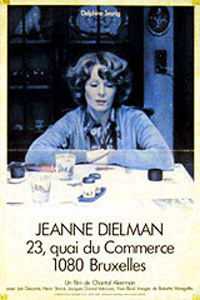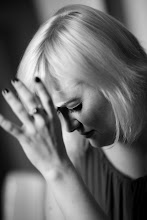

The premise of Silent Light (Stellet Licht in Plattdeutsch, the language spoken by Russian Mennonites) - a man falls in love with a woman who is not his wife - interested me less than the details of its production. Silent Light was filmed with a nonprofessional cast of Mennonite actors. Although it takes place in the Mennonite community in north Mexico (a community I did not know existed), the actors also hail from Canada and Germany, and were able to communicate with eachother because they all speak the same small language. Miriam Toews, one of the lead actors, is an acclaimed Canadian author who was raised in a Mennonite community. All of this is the type of trivia that makes me adore movies.
And I did enjoy Silent Light deeply, although my prurient interest in the film as a window into the cloistered lives of Mexican Mennonites ended up being inconsequential. The movie is an explosion of sensuality. Watching Silent Light reminded me of an African cinema course I took during my undergraduate career. The instructor told us that we would have to learn to read film in a new way, since African cinema features few of the tropes of mainstream American movies (closeups, quick cuts, flashy camerawork) and often features long still shots on people moving through a landscape. But Reygadas's film is by no means plain. every scene was so full of texture that I felt physically respondent to the film, wet when it was raining, heavy with sorrow during scenes of a funeral - but it subverts the expectations of the modern viewer. The film begins and ends with long dreamlike shots of a sunrise and sunset. The images are strikingly beautiful, and yet the desire to look away, to do something other than focus on what was in front of me, was hard to resist. Most of the people in the theatre did not resist - the rows were lit up with cell-phone screens as people texted and checked their missed calls. But Silent Light is all about the value of experience, even at the cost of personal comfort. A life fully lived, it seems to say, will never run out of surprises.

Jeanne Dielman is completely tonally different from Silent Light, but it too has a deep love for the unmoving camera. For nearly three and a half hours the viewer follows Jeanne through her day. She is a Belgian housewife without a husband, performing the rituals of domesticity seemingly solely for the benefit of her teenage son, who is at school all day. Even with the promise of "something" happening at the end of the movie, Jeanne Dielman is a long haul. Scenes ten and fifteen minutes long show Jeanne meticulously preparing food and then cleaning up after herself with a heartbreaking efficiency. The viewer returns with Jeanne to her chores - folding up the sofa bed her son sleeps on, making her own bed, grinding coffee beans - so many times that one starts to feel the same sense of exhaustion and misery at the routine that Jeanne herself must feel.

One of Jeanne's daily tasks is draping a small towel over her shiny middle-class bedspread, so that the gentleman caller she receives in the middle of each day will not sully her linens. Jeanne Dielman is a genteel prostitute, you see, selling dispassionate rolls in the sack in exchange for her continued stasis. These encounters are barely shown in the movie. Instead, we see Jeanne's ability to cope deteriorate over the course of the three days. On the second day, her hair is still tousled when her son gets home. "Your hair's a mess," he says, scarfing down his food. Jeanne's sister writes to her from Canada: would you like to visit us and maybe meet a nice man? But Jeanne can't even summon the energy to decide whether or not she would like to make the trip.
Where Silent Light was life-affirming for me, Jeanne Dielman felt uncomfortably familiar. I, too, am a woman who spends a lot of time alone in her apartment, although I am not also a discreet prostitute. I know the feeling of preparing a meal for yourself and then carefully cleaning up all evidence that the meal even occurred. The slight satisfaction that I take from small household tasks can become an enormous gloominess over the course of a day spent alone. By nightfall I'm restless, and if there's nothing for me to do and no one to see, the clean kitchen is small comfort.
Chantal Akerman was 25 when she made Jeanne Dielman. In an interview with my friend Dennis Lim, Akerman said:
“Jeanne has to organize her life, to not have any space, any time, so she won’t be depressed or anxious. She didn’t want to have one free hour because she didn’t know how to fill that hour. [...] I sometimes think I should have made it after many other films, at the end of my career,” she said. “I remember saying to myself, how can I make a better film? But it was also exactly the film I had to make then. It says something about a woman, about a way of living a life, about life after the war. It was the first thing I had to pour out of myself.”
She added, “I would have changed nothing about it.”

No comments:
Post a Comment